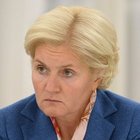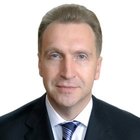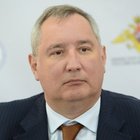Vladimir Putin held a meeting with Government members to discuss plans for public sector wage increases and a number of other current issues, including the results of the latest student intake in Russia’s universities, efforts to improve the environment for doing business, and expanding use of the GLONASS satellite navigation system.
* * *
President of Russia Vladimir Putin: Good afternoon, colleagues,
Before we address the main item on our agenda today, public sector wages, I first want to look at a few other current issues. Let’s start by asking Ms Golodets to tell us about the latest new student intake in Russia’s universities. What are the latest trends? Please, go ahead.
Deputy Prime Minister Olga Golodets: Colleagues,
This year, we have 324,000 budget-funded students newly enrolled in the universities. This is a slightly higher figure than last year. There is a steady trend for students entering courses of study in the natural sciences, engineering and technical fields, medical professions, and teacher training. We had 2,500 more students admitted to the medical professions this year, for example, than last year.
Competition is a lot higher now to get into universities. The national average works out at 8.8 people competing for one place. Let me note that competition has also increased to get into engineering and technical courses and teacher training. We see a real upsurge in interest in some fields such as medical biochemistry, where there are 33 people competing for each place, and the hotel business (this is linked to the development of domestic tourism), where 16.8 people competed for each place. We will support training in these in-demand fields, and this is also a signal to increase next year’s quotas for these fields.
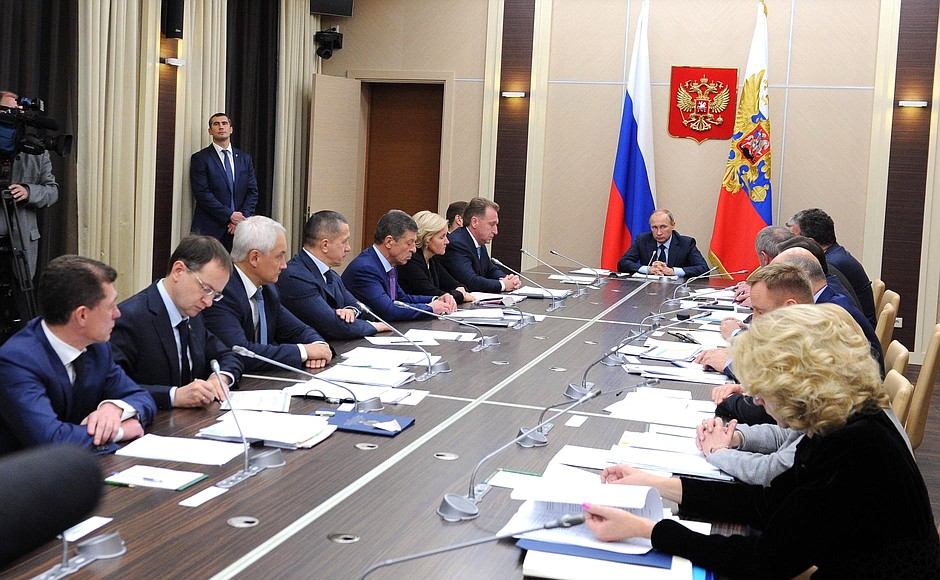
A lot more attention is going into preparing students for entering university now. It is good to see that the average grade in the national final school exam was 65.2, which is 0.8 percent higher than last year. In other words, we see that the average level of students is rising.
A total 6,900 winners of inter-school academic competitions entered university this year. These competitions provide opportunities for talented students to demonstrate their abilities and secure for themselves budget-funded places in universities, and we think this is an excellent practice. The third national forum The Future – Russia’s Intellectual Leaders is currently underway in Yaroslavl and it shows that our system of competitions and other forms of identifying talent continues to develop and gives an increasing number of talented students the chance to swiftly find their road and place in life.
Also important is that our position in the global division of labour has changed. Our universities have moved up in global ratings (for example, Moscow State University moved up six places in the QS rating to 108th place). We have another good result too in that the number of foreign students studying in Russia is growing, including students who are funding their own studies. We have 86,700 students from abroad this year, and this a stable upward trend. This shows that there is demand in the world for the education we offer, and the fields that prove they can meet this demand will receive government support.
Vladimir Putin: It’s not just universities. The World Bank raised Russia’s Doing Business ranking as well, right?
Deputy Prime Minister Igor Shuvalov: Mr President, you once initiated work by the Government on the national entrepreneurial initiative. This work is underway. We consider 2016 to be a crucial year, when all the roadmaps will come to fruition. But we will not stop this work. For all the items that were key in our work we will now monitor their implementation. In essence, this is our agenda that has been in place for several years. The Agency for Strategic Initiatives launched this work. We feel that it is very much needed. And it’s external manifestation is the World Bank’s assessment of our ‘doing business’ parameters and what place we hold in this ranking.
The ranking was published yesterday. Russia improved its position in this ranking, and we are now in 51st place. Based on the indicators you set for the Government, in 2015, we were supposed to be among top 50 nations in this ranking. In essence, we just missed this indicator, as we are in 51st place.
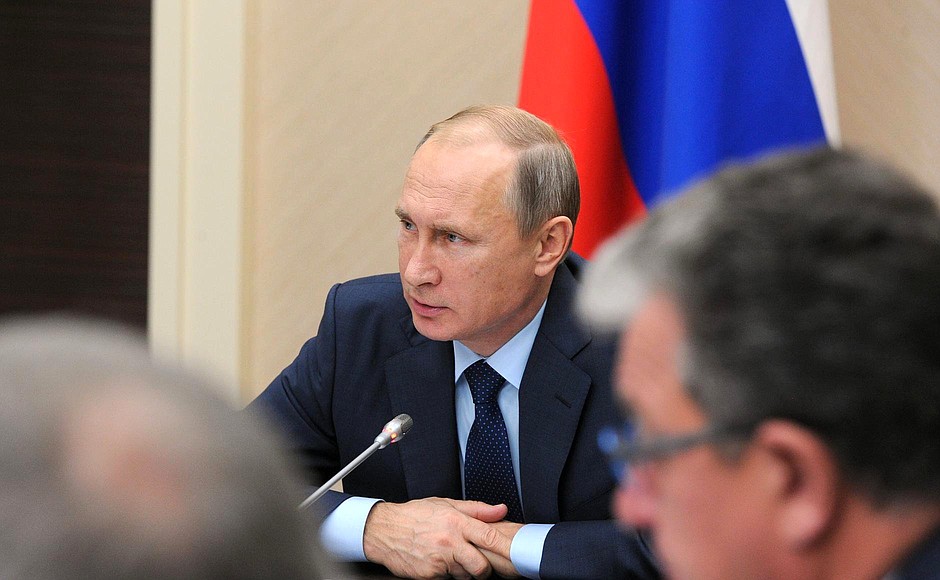
Many of the reforms we undertook were taken into account. Russia is among the 12 nations that carried out more than four reforms. The Russian Federation carried out five reforms during this reporting period. And it was noted that in certain areas we made a significant progress, including connection to power grids, tax administration, business registration and in other types of activity.
At the same time, even in those areas where our reforms were taken into account and where we worked actively, we must admit that our partner nations and competitors did better. For example, some of our indicators declined, such as supporting foreign trade turnover. This has to do with two factors.
The first is a change in methodology.
Second, everyone notes that the current system of necessary fees payable for freight registration and traffic, both export and import, is quite cumbersome for both the recipients and the shippers of goods.
Within the framework of the entrepreneurial initiative, we understand that we can gradually introduce the mechanism currently stipulated by the law on Vladivostok free port to other border crossings across the nation, and the customs agencies will be able to manage other areas and functions, but this will be done by a customs officer. This would be done in part through the Federal Service for Veterinary and Phytosanitary Surveillance and the Federal Service for the Oversight of Consumer Protection and Welfare. It is not an easy work, but we will ultimately need to make these system-wide changes in order to eventually ensure better, easier support for freight traffic.
Overall, we are working actively with the World Bank; this work is ongoing, rather than occasional. In fulfilling our entrepreneurial initiative roadmap and all our plans for 2016, we hope to significantly improve these indicators.
Vladimir Putin: Very well.
Mr Rogozin, we recently visited the cosmodrome that is under construction. You mentioned another space-related issue in passing, the GLONASS project. What is happening there now, how do you assess the situation?
Deputy Prime Minister Dmitry Rogozin: Mr President, the [satellite navigation] grouping is working steadilyand developing consistently. At the moment it features 28 satellites, of which 23 are on standby alert, one is undergoing technical maintenance, two are being examined by the chief designer, and two new GLONASS-K satellites are undergoing flight tests. In December, we will carry out scheduled replacement of one of the satellites. But on the whole, I want to say that we have an insurance material reserve – this includes nine satellites on earth; in other words, if needed, we can always replace a satellite if it breaks down.
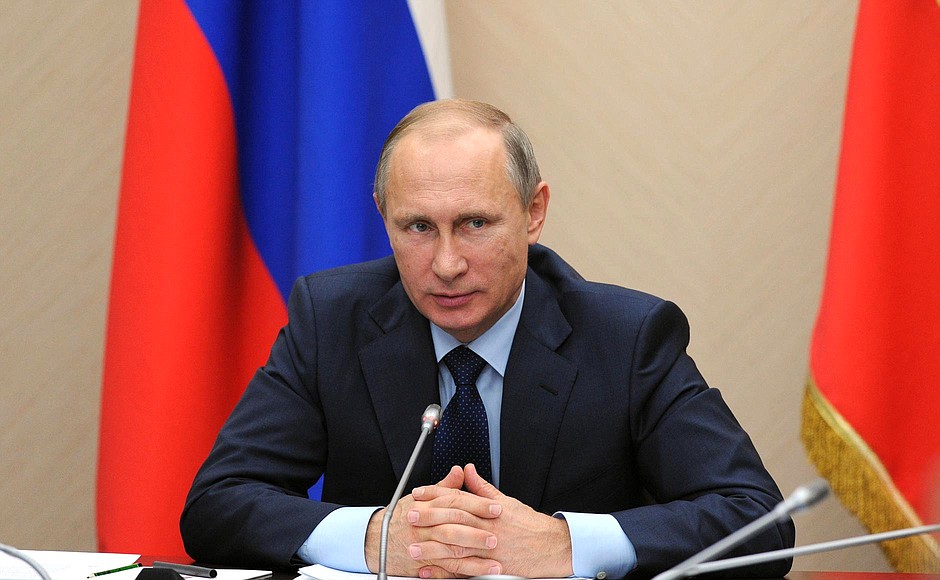
Right now, we are working on a new generation of spacecraft. The Istok company based in Fryazino is completing its technical upgrade. There, we will produce atomic beam tube frequency standards that will allow us to improve the quality of the entire GLONASS satellite grouping’s operation.
We are working on import substitution. And, of course, we are extending the spacecraft’s operating life from seven years to ten. I must mention one curious fact that even the spacecraft we launched back in 2005 continue to work in orbit, despite the fact that their operating life expired three years ago. This speaks to their high quality.
The new spacecraft will also transmit enhanced navigation signals, which will allow, following scheduled replacement of the grouping by 2020, to reach the signal accuracy of one metre, which is an absolutely competitive advantage over GPS.
If we look at what is happening on earth, the GLONASS system provides 100% navigation cover of worldwide territory. Right now, we have five stations opened beyond Russia for the ground segment; we will be opening four more stations soon and we are holding talks with other states.
We reported to you that we have made serious progress with China on combining our navigation systems. Their regional system, BeiDou, can already be combined with GLONASS.
Another interesting fact is that 2.5 billion devices throughout the world are already receiving the signals transmitted by GLONASS. In other words, there is already good progress and overall, we expect our system to cover 40% of the global market.
You approved the general designer – Sergei Karutin, deputy director of the Central Research Institute of Machine Building. He undertakes the comprehensive work of further developing the system. This July, we saw the start of operations by the GLONASS open joint stock company, which operates projects like ERA-GLONASS. Incidentally in the 10 months of its operation, ERA-GLONASS processed 12,000 signals; in other words, it is a large number of people rescued in road accidents.
Overall, we feel that GLONASS jointly with Roscosmos and Rostec [state corporation] can resolve three challenges they are currently facing.
The first is the commercialisation of launch services market.
The second is further developing public use of the GLONASS civil segment.
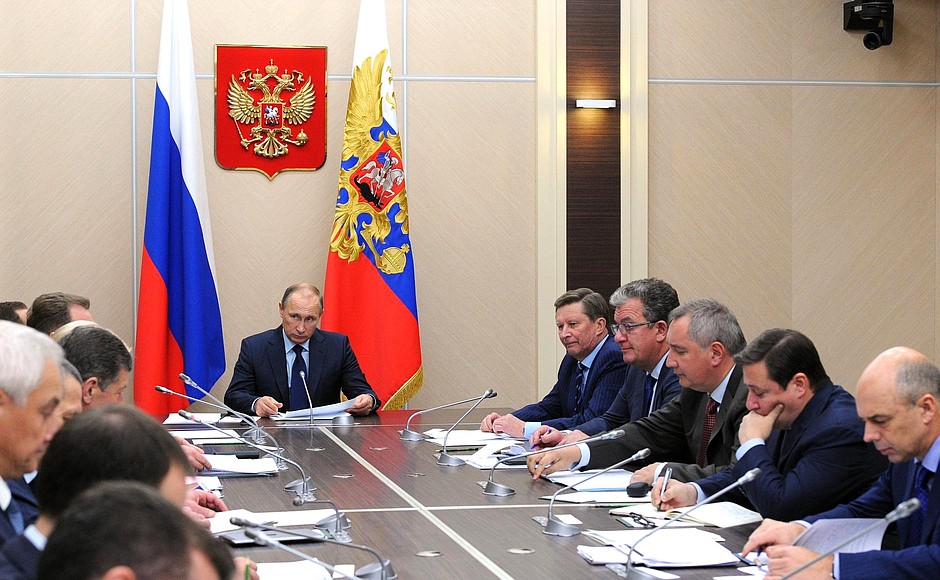
And the third is localising the production of all receivers in the Russian Federation, because for now, most of them are produced outside of Russia. So production of GLONASS units, receiver chipsets, is among the 12 priority programmes in the microelectronics development plan that we recently discussed at our meeting and will implement in the near future.
Overall, I want to say – right now, I am not talking about GLONASS’ importance for national defence – but in the civil segment, this system is working in a truly stable way and is in high demand.
Vladimir Putin: “In high demand” – what does that mean? Can we launch it so that it generates real profits, so that it works properly on the market? We set the tasks of using the system’s capabilities for municipal and regional transport as well as for other purposes. Is this working or not?
Dmitry Rogozin: The GLONASS joint-stock company is about to start work on a project for 12-tonne heavy-duty trucks to plan their routes and properly tax them. Actually, this is already the commercialisation of the system.
Moreover, if we combine – and we are now starting this – navigation and mapping (cartographic) services to create new maps, this is something that has an absolutely market dimension around the world. So we think that the operator we have created, this joint stock company, will soon be able to successfully commercialise Russia’s navigation service.
Vladimir Putin: Very well. This issue needs constant attention.
<…>
